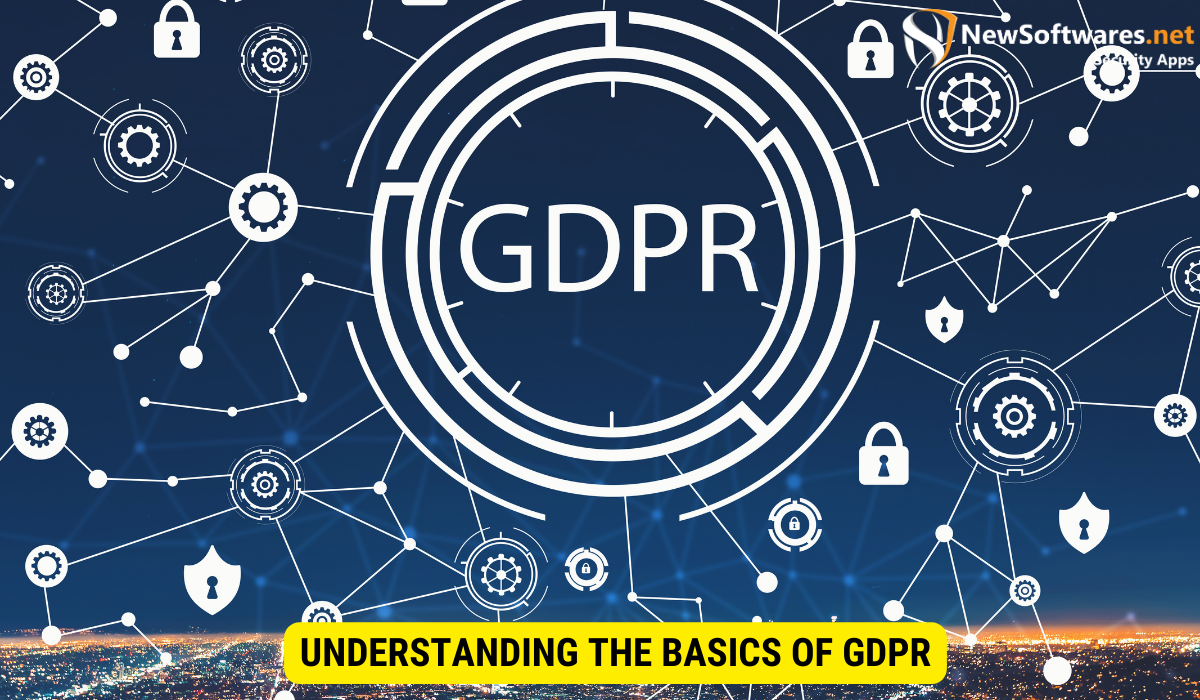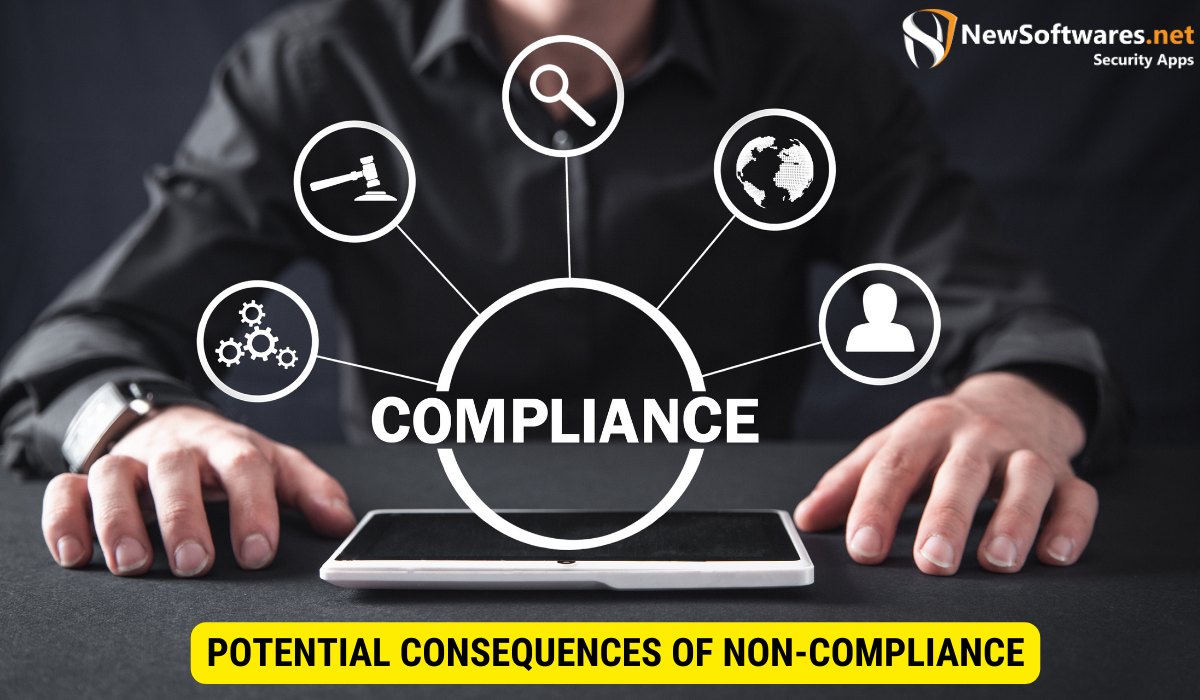Under the General Data Protection Regulation (GDPR), data encryption is essential to protect personal data. Personal data, as defined by GDPR, includes any information that relates to an identified or identifiable individual. This encompasses not only names and addresses but also online identifiers like IP addresses. While GDPR doesn’t explicitly mandate encryption, it is considered a highly effective security measure for ensuring compliance with the regulation’s key principles.
In today’s digital age, data protection has become an increasingly important concern for businesses and individuals alike. With the implementation of the General Data Protection Regulation (GDPR), organizations are required to take adequate measures to ensure the security and privacy of personal data. One such crucial measure is data encryption. Together, we will explore the basics of GDP R, the importance of data encryption in compliance, and how to identify data that requires encryption. We will also delve into the steps organizations can take to ensure compliance with GDPR encryption requirements and the potential consequences of non-compliance.
Understanding the Basics of GDPR

Before we delve into the specifics of data encryption under GDPR, it is essential to understand the basics of this comprehensive regulation. The General Data Protection Regulation (GDPR), which came into effect in May 2018, is designed to protect the rights of individuals regarding the processing of their personal data. Its main objectives are to strengthen data protection and privacy and provide individuals with greater control over their personal information.
The GDPR defines personal data as any information that relates to an identified or identifiable individual. This includes not only obvious data such as names and email addresses but also less apparent identifiers such as IP addresses and biometric data. The purpose of the GDPR is to ensure that individuals have control over their personal data and that organizations handle this data securely and responsibly.
Definition and Purpose of GDPR
The General Data Protection Regulation (GDPR) is a regulation enacted by the European Union (EU) to protect the privacy and personal data of individuals. It applies to all organizations that process the personal data of EU residents, regardless of where the organization is located. The GDPR aims to harmonize data protection laws across the EU and give individuals more control over their personal information.
Under the GDPR, personal data is defined as any information that can be used to directly or indirectly identify a person. This includes not only traditional identifiers like names and addresses but also online identifiers such as IP addresses and cookies. The purpose of the GDPR is to ensure that individuals have control over their personal data and that organizations handle this data in a transparent and secure manner.
Key Principles of GDPR
The GDPR is built upon several key principles that organizations must adhere to when processing personal data. These principles are:
- Lawfulness, fairness, and transparency: Organizations must process personal data lawfully, fairly, and in a transparent manner. This means that organizations must have a valid legal basis for processing personal data, inform individuals about the processing activities, and ensure that the processing is done in a way that is fair to the individuals.
- Purpose limitation: Personal data must be collected for specified, explicit, and legitimate purposes and not further processed in a manner incompatible with those purposes. This principle ensures that organizations only collect and use personal data for the purposes for which it was originally collected and that they do not use it for other unrelated purposes without obtaining the individual’s consent.
- Data minimization: Organizations should only collect and process personal data that is necessary for the intended purpose. This principle emphasizes the importance of minimizing the amount of personal data collected and processed, as well as the need to retain it for only as long as necessary.
- Accuracy: Personal data must be accurate and, where necessary, kept up to date. Organizations are responsible for ensuring the accuracy of the personal data they process and taking steps to rectify any inaccuracies or update the data when necessary.
- Storage limitation: Personal data should not be retained for longer than necessary. This principle requires organizations to establish retention periods for different types of personal data and delete or anonymize the data once it is no longer needed for the specified purposes.
- Integrity and confidentiality: Organizations must handle personal data with appropriate security measures, including encryption. This principle emphasizes the importance of protecting personal data from unauthorized access, disclosure, alteration, or destruction. Encryption is one of the security measures recommended by the GDPR to ensure the confidentiality and integrity of personal data.
By adhering to these key principles, organizations can ensure that they are compliant with the GDPR and that they are respecting the rights of individuals when processing their personal data.
The Importance of Data Encryption in GDPR
Data encryption plays a fundamental role in ensuring the confidentiality, integrity, and security of personal data under the GDPR. Encryption transforms data into an unreadable format, known as ciphertext, using cryptographic algorithms. Only authorized individuals or systems possessing the encryption key can decrypt the data and make it readable again.
Role of Encryption in Data Protection
Encryption acts as a safeguard against unauthorized access to personal data. In the event of a data breach, encrypted data remains protected since the attackers would need the encryption key to decipher the information. By encrypting data, organizations can ensure that even if data is compromised, it remains useless to unauthorized individuals.
Benefits of Encrypting Data under GDPR
There are several benefits to encrypting data under the GDPR:
- Data confidentiality: Encryption ensures that personal data remains confidential, even if it falls into the wrong hands.
- Data integrity: Encryption protects against unauthorized modifications or tampering of data.
- Compliance with GDPR: Encrypting personal data helps organizations meet the regulatory requirements of the GDPR.
- Consumer trust: Demonstrating robust data protection measures, including encryption, builds trust with customers and other stakeholders.
Identifying Data that Requires Encryption
Not all data processed by organizations falls within the scope of GDPR encryption requirements. It’s essential to identify the types of data that require encryption to ensure compliance and maintain adequate data protection.
Personal Data and Sensitive Personal Data
Under the GDPR, personal data refers to any information that relates to an identified or identifiable individual. This includes data such as names, email addresses, phone numbers, and identification numbers. Sensitive personal data, on the other hand, includes more sensitive information like health records, racial or ethnic origin, religious beliefs, and sexual orientation. Both personal data and sensitive personal data should be encrypted to ensure their protection.
Non-Personal Data
Non-personal data, also known as anonymous or pseudonymous data, does not directly identify an individual. This type of data does not fall within the scope of GDPR encryption requirements. However, organizations should still implement security measures to safeguard non-personal data and prevent re-identification.
Steps to Ensure Compliance with GDPR Encryption Requirements
Now that we understand the importance of data encryption under GDPR and how to identify data that requires encryption let’s explore the steps organizations can take to ensure compliance with the encryption requirements.
Conducting a Data Audit
Organizations should conduct a comprehensive data audit to identify the personal and sensitive personal data they process. This audit helps organizations understand where the data is stored, who has access to it, and the encryption status of the data. The audit’s results will guide organizations in developing a robust encryption strategy.
Implementing Encryption Measures
Once the data audit is complete, organizations should implement appropriate encryption measures based on their findings. This may involve implementing encryption at rest, encryption in transit, or both, depending on the organization’s infrastructure and the types of data being processed.
Potential Consequences of Non-Compliance

Non-compliance with the encryption requirements of the GDPR can have significant implications for organizations.
Legal Implications of GDPR Non-Compliance
Failing to comply with the encryption requirements of the GDPR can result in legal consequences. Supervisory authorities have the power to issue warnings, reprimands, and orders to comply with the regulations. In severe cases, authorities can impose heavy fines or even prohibit organizations from processing personal data.
Financial Penalties for Non-Compliance
Organizations found to be non-compliant with the GDPR can face substantial financial penalties. Depending on the nature of the violation and the organization’s size, fines can reach up to €20 million or 4% of the organization’s annual global turnover, whichever is higher.
Key Takeaways:
- GDPR aims to protect individuals’ privacy and personal data rights.
- Encryption is vital to ensure the confidentiality and integrity of personal data under GDPR.
- Personal data and sensitive personal data should be encrypted to meet GDPR requirements.
- Conducting a data audit helps identify data that requires encryption.
- Non-compliance with GDPR encryption requirements can lead to legal and financial consequences.
FAQs:
Is data encryption mandatory under the GDPR?
Data encryption is not explicitly mandated but is considered one of the most effective security measures for GDPR compliance.
Are small organizations exempt from GDPR encryption requirements?
No, GDPR applies to all organizations, regardless of size; data protection measures, including encryption, are necessary for compliance.
Can encryption alone guarantee GDPR compliance?
While encryption is crucial, a holistic approach to data protection, including access controls and training, is essential for GDPR compliance.
What is the GDPR’s definition of personal data?
Personal data includes any information related to an identified or identifiable individual, covering more than just names and addresses.
What are the potential financial penalties for GDPR non-compliance?
Fines for non-compliance can reach up to €20 million or 4% of an organization’s annual global turnover, whichever is higher.
Conclusion:
In conclusion, data encryption plays a pivotal role in ensuring compliance with the GDPR and protecting personal data. Organizations must identify the types of data that require encryption, conduct data audits, and implement robust encryption measures. By taking these steps, businesses can not only safeguard personal information but also avoid the potential legal and financial consequences of non-compliance. Remember, data encryption is more than just a requirement – it is a powerful tool to enhance data security and build trust with customers in today’s increasingly data-driven world.
